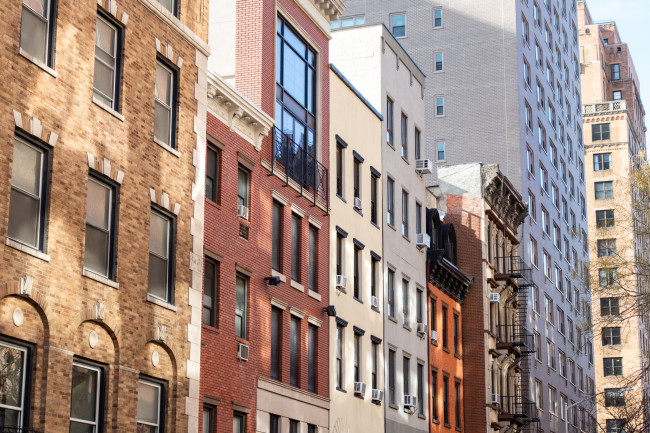How do I find out if my building has air rights, and how do we sell them?
I want to look into whether my building has air rights to sell. How do I go about it, and if we do have air rights, how does the board sell them?
What are commonly referred to as air rights or development rights are legally based in a concept called floor area ratio, or FAR.
"FAR determines bulk of the building by establishing the amount of permitted floor area. FAR is calculated by multiplying the size of the zoning lot by a number/ratio permitted under the Zoning Resolution of the City of New York," says Steve Wagner, a partner at the real estate law firm Wagner Berkow and a longtime board member at his Manhattan co-op. "The ratio number primarily depends on the zoning district you're in, but other things may affect it.”
To figure out the allowed size of your building versus how big it is now involves a bit of algebra. In short, by doing some back-of the-napkin math with the length and width of your building's lot and the length and width of your building itself, you should be able to figure out the gross size of your building and the number of square feet of FAR allowed for your lot. And if there's a lot more floor space allowed than you currently have, you may have development rights to sell.
"In the most basic terms, to find out the number of square feet of FAR that's available for sale, you take the number of square feet of the footprint of the property and multiply it times the ratio specified for that zoning district, and then deduct the floor area of your building." Wagner says.
If only zoning were so simple!
"This is a complicated thing," Wagner says. "The ratio is different depending on the use, for example whether it's residential, commercial or what's called a community facility."
Also, the building's mechanicals, cellar space, elevators and stair bulkhead don't count towards the FAR square footage total. Developers may be able to get FAR bonuses for including plazas or below-market-rate apartments in or around their buildings. Various zoning designations require street setbacks or have height caps, to name a few requirements from the array that exists, which may also limit other property owners ability to use excess FAR.
It could be that when you do these calculations you find out that your building is actually bigger than the zoning allows. Generally, this is because the building was constructed before current zoning rules went into effect, and there's no need to panic, since your building is probably grandfathered in. However, it can be a pain if you're trying to do any kind of addition, because you're likely not allowed to add any more floor space, and even if you can buy development rights, some of it will just go to offset the amount that your building is over-built.
If you do have extra FAR, though, "Check with somebody who would be able to tell you whether there is a possibility of transferring them," Wagner says. "An architect or an attorney who's knowledgeable could tell you whether there are restrictions or whether you will be allowed to merge the zoning lots."
Another feature of zoning rules is that additional FAR is only transferrable to a point: with few exceptions, you can only transfer to buildings next door (specifically, properties with 10 feet or more of contiguous lot lines) or, if you want to get creative, a few buildings over on the same block. The latter option would require getting the buildings between you and the buyer involved, so that the buyer can merge your and your neighbors' zoning lots with theirs and daisy-chain the air rights over to their building.
"The person you’re selling to can be two or three properties away, but everybody has to agree," Wagner says. "Ideally you’d want to have a contiguous lot line with the person who’s buying them."
If a sale it looks like a possibility, "It’s not a bad idea to bring in a broker who knows the value and possibly knows the parties surrounding your building," he adds. Thanks to the geographic limitations, "It’s not like the entire world can come in and buy development rights. There’s a limited number of people who can purchase them."
Late in the process, either your board or the prospective purchaser will need to hire a surveyor to go through the building floor by floor and confirm the floor area down to the square foot. The sale negotiations can get complex, particularly if more than two building owners are involved. But the payoff can be huge.
"In prime Manhattan neighborhoods, the price for air rights can be $400 a square foot or higher" Wagner says. "It can be enough to redo the lobby, fix the facade, and have a big reserve for many years to come."
He adds that he's currently working on such a deal worth eight figures. As your board starts seeing dollar signs, it's worth keeping in mind that the sale will be subject to taxes.
"So it’s not only figuring out how much you have to sell and figuring out who to buy it," Wagner says. "You also have to figure out what you’re going to net out of it."
New York City real estate attorney Steven Wagner is a founding partner of Wagner, Berkow, & Brandt, with more than 30 years of experience representing co-ops, condos, as well as individual owners and shareholders. To submit a question for this column, click here. To arrange a free 15-minute telephone consultation, send Steve an email or call 646-780-7272.
You Might Also Like




























